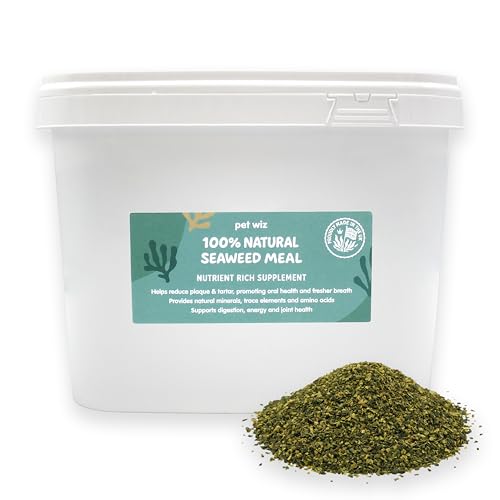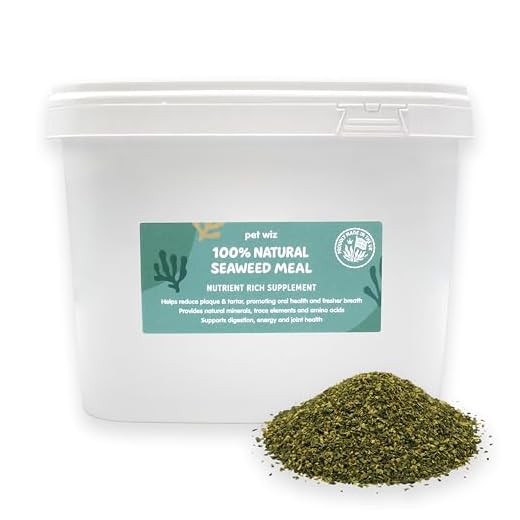




Including trace minerals in your canine’s diet can significantly enhance their overall health, and one particular mineral stands out: selenium. This micronutrient plays a pivotal role in promoting a robust immune system and supporting cellular function. My own experience with my furry companion, Max, highlighted the importance of a balanced diet enriched with essential nutrients. After noticing some health issues, I consulted my vet, who recommended incorporating a selenium supplement.
Research indicates that this mineral contributes to the prevention of certain conditions, including heart disease and cancer, by acting as a powerful antioxidant. For instance, studies have shown that adequate selenium levels can improve the quality of life in older pets, much like the benefits I observed in Max after he started taking the supplement. His energy levels surged, and his coat became shinier, which was a clear indication that the addition was beneficial.
It’s crucial to monitor the dosage, as both deficiency and excess can lead to health complications. The recommended amount varies depending on the dog’s size, age, and specific health needs. Always consult with a veterinarian before making any changes to your pet’s nutritional regimen. A tailored approach ensures that your four-legged friend receives the appropriate levels of this important mineral without risking toxicity.
Is Selenium Beneficial for Canines?
Incorporating trace minerals into your pet’s diet can yield noticeable benefits. The mineral in question plays a role in antioxidant defence, which is crucial for maintaining overall health. While many commercial pet foods include this nutrient, ensuring the right balance is key. Too much can lead to toxicity, while too little may hinder your furry friend’s well-being.
Sources of the Mineral
Natural food sources, like fish and organ meats, provide a healthy amount of this nutrient. If you’re considering supplements, consult your vet first. They can recommend appropriate dosages based on your pet’s specific needs. Always remember, moderation is key. A well-rounded diet should be the foundation of your pet’s nutrition.
Monitoring Health
Regular veterinary check-ups will help monitor any deficiencies or excesses. Keeping an eye on your pet’s behaviour and physical condition can offer clues about their nutritional status. If you’ve noticed changes, such as lethargy or coat issues, it might be time to reassess their diet.
For more insights into canine behaviour, check out this article on why does a dog try to cover up their food. Understanding these habits can enhance your relationship with your furry companion.
Understanding Selenium’s Role in Canine Nutrition
Incorporating trace minerals like selenium into your pet’s diet can significantly enhance their overall health. This element acts as a powerful antioxidant, helping to protect cells from oxidative stress, which can lead to chronic diseases. Regular inclusion of this nutrient can support a robust immune system, keeping your furry friend active and cheerful.
Sources of Selenium
Natural sources of this mineral include organ meats, fish, and certain grains. If you’re considering a homemade diet, adding these foods can be beneficial. However, commercial dog foods often contain appropriate levels, so checking the nutritional information is key. If you’re unsure, consult your vet about specific brands that offer balanced nutrition.
Signs of Deficiency
Be vigilant for signs of deficiency, like lethargy or weakened immune response. If you notice a lack of energy or frequent illness, it may be time to reassess their diet. Always consult with a veterinarian before making any significant changes to ensure your loyal companion’s nutritional needs are met adequately.
Recommended Selenium Sources for Canines
To ensure your furry companion receives adequate nutrients, consider incorporating these specific food sources rich in the trace element. Here’s a breakdown of some excellent options:
| Food Source | Amount of Selenium (per serving) | Notes |
|---|---|---|
| Brazil Nuts | 68-91 mcg | Highly concentrated; just a small piece can suffice. |
| Fish (e.g., tuna, salmon) | 40-60 mcg | Great source of protein; ensure it’s cooked without additives. |
| Chicken Liver | 40 mcg | Highly nutritious; feed in moderation to avoid excess vitamin A. |
| Eggs | 15-20 mcg | Versatile and easy to include in meals; cooked eggs are best. |
| Whole Grains (e.g., brown rice, whole wheat bread) | 10-15 mcg | Provides additional fibre and nutrients; serve in moderation. |
| Spinach | 4 mcg | Rich in other vitamins; can be cooked or served raw. |
Incorporating these food items into your pet’s diet can enhance their overall health. I’ve found my own pup thriving with a mix of these options, showing more energy and vitality. Always consult with a vet before making significant changes to their diet to ensure it aligns with their specific needs.
Signs of Selenium Deficiency in Canines
Watch out for these indicators of low levels of this trace element in your furry friend. A noticeable sign is lethargy; if your pet seems unusually tired and less playful, it could be a concern. Pay attention to their coat as well; a dull, brittle fur can signal nutritional deficiencies, including inadequate intake of this mineral.
Muscle Weakness and Pain
Another alarming symptom is muscle weakness. If your canine struggles with mobility or shows signs of discomfort during physical activity, it may indicate an issue. In severe cases, you might observe muscle wasting or stiffness, which can be distressing to witness.
Immune System Issues
A weakened immune response is also a potential red flag. Frequent infections or prolonged recovery times from illnesses can hint at nutritional gaps. Keeping an eye on these signs is crucial for maintaining your companion’s health.
Potential Risks of Selenium Overload in Canines
Excessive intake of this trace element can lead to toxicity, resulting in serious health issues. Symptoms may vary in severity, but being aware of these signs is crucial for any pet owner.
- Gastrointestinal Distress: Vomiting and diarrhoea are common early indicators of an overload. If your canine exhibits these symptoms after consuming a high-selenium diet, immediate veterinary consultation is advised.
- Loss of Appetite: A sudden disinterest in food can be alarming. If your furry friend is refusing meals, it may be linked to elevated levels of this mineral.
- Hair Loss: Unusual shedding or patchy fur can signal an imbalance. Pay attention to changes in your pet’s coat condition.
- Fatigue: Lethargy or decreased energy levels can indicate a problem. An active pup that suddenly becomes sluggish deserves a closer look.
- Neurological Issues: In severe cases, tremors or coordination problems can occur. If you notice your canine struggling to walk or showing unusual behaviour, seek help at once.
Monitoring the total intake from all food sources is key. Supplements should only be given under veterinary supervision. It’s important to balance dietary needs and avoid over-supplementation. Regular check-ups can help ensure that your pet remains healthy and safe.
Always consult with a veterinarian before making any dietary changes. Each animal’s needs vary, and a professional can provide tailored advice to keep your companion thriving.
Consulting with a Veterinarian About Selenium for Your Canine Companion
Before introducing any supplement into your pet’s diet, seek advice from your veterinarian. They can provide tailored recommendations based on your pet’s specific needs, health status, and dietary habits.
Key Questions to Ask Your Vet
- What is the appropriate dosage for my pet’s size and breed?
- Are there any existing health conditions that could be affected by this mineral?
- Can you recommend any specific brands or products that are reliable?
- What signs of deficiency or excess should I monitor after starting supplementation?
Importance of Regular Check-ups
Regular veterinary check-ups are crucial for monitoring your pet’s health. These visits can help identify any nutritional deficiencies or excesses early on. Your vet may recommend blood tests to evaluate levels of various nutrients, ensuring your furry friend remains balanced.
Sharing your observations about your pet’s behaviour, coat condition, and overall well-being can provide valuable insight to your veterinarian. This information can guide their recommendations and adjustments to your pet’s diet.
Ultimately, your vet is your best resource for ensuring your canine companion receives the right nutrients in the right amounts. Prioritising their professional guidance can lead to a happier and healthier life for your pet.






